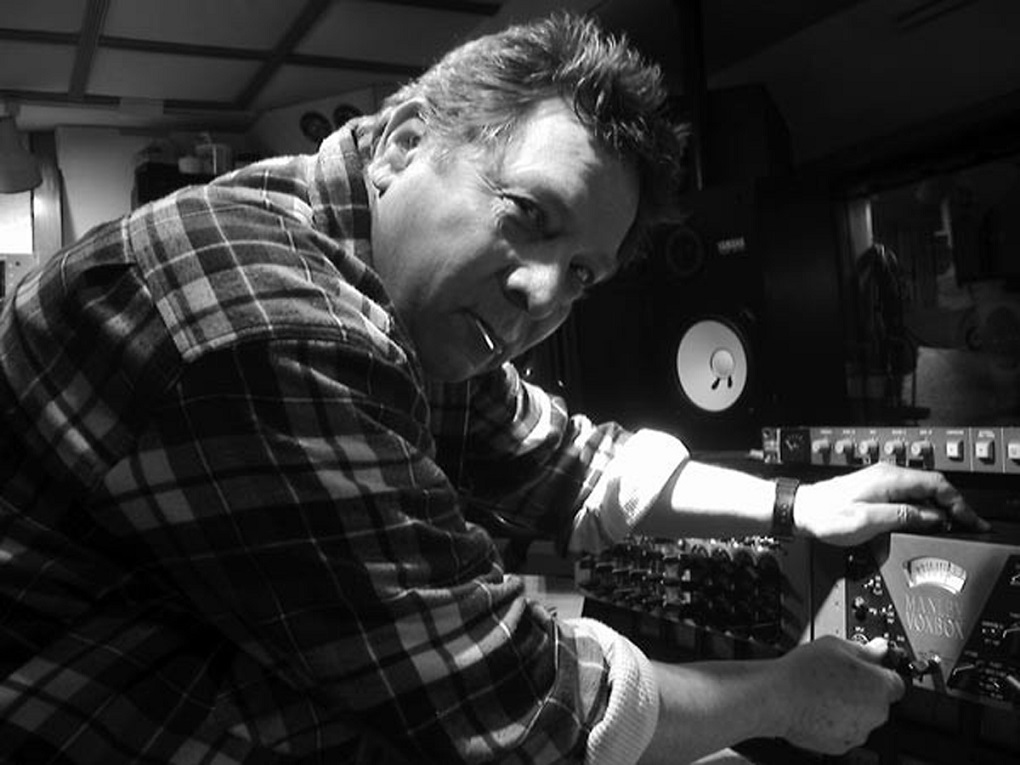
After 26 Years, Dan Penn Pens New Album
It’s been a long time since the last studio album by Dan Penn, 26 years to be exact. Was it worth the wait?
Hell, yeah.
The recently released Living on Mercy has 13 songs by the legendary songwriter, two solo tunes and the rest written with collaborators.
Soul, r&b, country, pop, the blues, call it what you will, all can be found in the grooves of Living on Mercy.
And, of course, it’s soulful. That’s a given, considering not only Penn’s no-other-way-to-say-it soulful vocals but also that he wrote some of the all-time great soul songs, including “Do Right Woman, Do Right Man,” “Dark End of the Street,” and “I’m Your Puppet.”
His songs have been covered by a wing of hall of fame singers, among them Solomon Burke, James Carr, Aretha Franklin, Etta James, Janis Joplin, Ronnie Milsap, Charlie Rich, Percy Sledge, and Dionne Warwick.
Like the best wine, the album came about simply because it was time.
“First you’ve gotta have a desire to make an album. And then you gotta look around and see if you’ve got any songs. And if you don’t, you’ve gotta write them. You may have a few back in the catalogue, which I did. And then I wrote some, too. All of a sudden I had enough. I just thought the time was right and just went at it,” Penn, 78, said.
No Depression wrote, “It would have been easy to write this review in one sentence: there are very few more perfect albums than Dan Penn’s albums, so pick this one up, put it on, and let the music wash over you. Penn knows how to reach those dark recesses of our souls with just the right notes of feel-good music and just the right lyrics that evoke the tentative ways we fall in love, the ragged despair of loss, the wistful regret over missed connections, and the joyful promise of lusty celebrations.”
Offbeat Magazine said, “Penn’s secret here obviously is writing songs that address the needs, experiences and various emotions of everyday people. Living On Mercy contains 13 songs just like this. This is a CD that only gets better and better with each listen—highest recommendation here. Buy one for yourself and another for a friend. This CD is that good and should pile up a bunch of awards.”
Penn had lined up gigs to promote Living on Mercy. But the pandemic sidelined those plans, like it has for so many performers. So, from his home in his hometown of Vernon, Ala. he graciously spoke in his genial Alabama drawl about how the album came together and songwriting. It may not have been a master class in songwriting, but it was certainly a master talking about how he writes songs and creates records.
Songwriting for Penn is not a matter of getting the words first and then the music, or vice versa. It’s both together, but it’s really all about the feel.
“I want it to feel like I want it to,” he said. “The lyrics are secondary to me. Although I know you need a good lyric, I don’t study trying to make a better lyric. I’m more interested in the groove. And the way the lyric hits the music. That’s where I live. I live right there where the words hit the music.
“Words are mostly a brain thing. But the feel is a heart thing. I want that if I can get it.
“If I had to sit down to write a lyric it would have no feel. It’d be just words. If I just wrote the music, it wouldn’t have much of a feel because there’s nothing for anybody to sing. Like I say, the feel is what’s important to me.”
Penn no longer writes every day like he did “when I was younger. I would run at it and just about write every day and every night basically. All through the 60s and part of the 70s. As I’ve aged I’ve backed off some. I write now occasionally. Sometimes by myself, sometimes I’ll get up a little scene with another writer.
“I prefer to collaborate if I’ve got a lot better musicians than me. If I’m writing with somebody, a good keyboard or a guitar player that’s real good, than that helps me. I don’t mind writing solo either but it’s not as much fun. Tell a joke, have a laugh. Whatever you need to do to make the day pleasant.”
As far as what influences his writing, Penn said it could be you if he happens to see you walking down the street.
“I can be influenced anytime. I can just look at somebody sometimes, in somebody’s face there may be a song, or an idea, or at least something that makes me think there’s a song. Or it can come from anywhere. As far as about writing about one thing all the time, that gets boring,” he said.
Penn added, “I’m making it up as I go. I don’t try to write real stuff. None of my songs are real stories. They’re all made up. That’s just the way I’ve always done. I never tried to write my story.”
There is one type of song that he no longer writes and that’s cheating songs “because I done wrote one of the best ones so I’m through with that. ‘Dark End of the Street.’”
When Penn collaborates, it’s done in person. He won’t write over the phone with someone or by sharing files on a computer. He wants the other person there, playing an instrument, trying to create that all-important feel.
Then they get at it and keep at it until they have something.
A lot of times at a writing session, Penn said, “I won’t have anything and the other person won’t either. And we just have to take what comes up. We just hang out until we do find something to write about. Sometimes we don’t get anything. It’s kind of like going fishing. Sometimes you don’t catch anything. But that’s the way it goes. But most times you write you’ll get a nugget of some kind. You may have to spend an afternoon or part of a night just getting an idea. And you may have to come back tomorrow or the next day. Sometimes it takes a few days to get one together. You just have to plod along and meet again. We might skip a day. And things have a way of coming together that way sometimes.”
One example is Living on Mercy’s “What It Takes To Be True,” written with Buzz Cason. “That song we had to meet two or three times to land it. That’s the way things go sometimes and that’s alright. It’s a chance to hang out with your friend,” Penn said.
And when is a song finished?
“Whenever you stop, I guess.
“You just got a feeling that it’s through. You’ve got enough. And that’s really all it takes is enough. Too much is too much. You just do the best you can and then that’s what you’ve got.
“I used to be hard to please, more hard than now, I would probably go past it, you know,” Penn said. “These days I’m kind of a two verses, a bridge, a verse type person, so it automatically tells me. I don’t do every song that way, but that’s my way of doing.”
The acts Penn has produced is another list of greats.
One of his first productions was the Box Tops, who reached number one on the Billboard charts with “The Letter.” (He also wrote their hit, “Cry Like A Baby,” with Spooner Oldham, which reached number 2 on the Billboard charts. His production credits also include Solomon Burke, A.J. Croce, the Hacienda Brothers, Patti LaBelle & the Bluebelles, Ronnie Milsap, Esther Phillips, Bobby Purify, and Irma Thomas.
His production of Living on Mercy, and his approach to producing in general, is as straightforward as his take on songwriting. “I don’t really make any big plans,” Penn said. “I cut the tracks and then I decide what I’m going to do with them. I don’t try to produce the record before I cut the track.”
A record is made in the final mix and the mastering, he said.

“You go along and you do your work and sometimes they come off. Some of them come off better than others. And sometimes that’s even out of your hand. You do the best you can. You don’t really know until you get to the mastering room how well you’ve done.”
Penn said he tries to “get what I can out of real musicians who are there. Once that’s done and you like that, then you might shine it up somewhere. I try and keep it as simple as possible. You might have to go back and re-do some of it. If I say, ‘well, I like this the way it is I’m not going to do anything. Or maybe I need some girls on this or some horns.’”
Penn named “Edge of Love,” written with Wayne Carson, as a particular favorite on Living on Mercy. “That’s the one I really like,” he said “It’s groovy and it’s funky. And it’s just a fine song. One hard to write, too. A tempo song that makes any sense. Hot guitars. Hot horns. A little distortion just makes it all go right together.”
He credits the musicians for Living on Mercy coming out so well. Playing on the album are Clayton Ivey on keyboards, Will McFarlane on guitars, Milton Sledge on drums, and Michael Rhodes on bass.
“The band is so tight, so substantial. I’m singing pretty good, the songs are good, but the band is the outstanding star of that show to me because they just keep coming. These guys just kill it. They’re tight. Clayton Ivey, he is a genius keyboard player. He’s the leader of all this. And all the other guys are top notch, too. Very top notch. So the band, I’m proud of what they did and what we all did together.
“It was fun and that kind of shows on the record I think. When people are having fun you kind of hear that. When I listen to it, I hear fun,” Penn said.
Penn is pleased with the record if he does say so himself. And he does.
“I’m real happy with it. I like the record. I hope everybody else does,” he said. “I keep listening to it and I go, ‘wow, that sounds great.’ I’m hoping good things happen with it.”
If good things do happen with Living on Mercy, perhaps that means it won’t be another 26 years before Penn’s next record. And wouldn’t that be great?
Hell, yeah.

-30-
Nice review, Jay. Dan sounding as great as ever.
Nice article and review. And thanks for opening my eyes so much wider to Dan Penn when you did.
Art